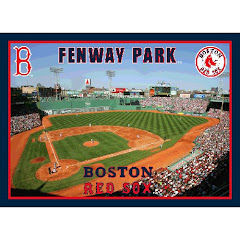On Monday, April 28th, I had the pleasure of seeing Michael Wilbon speak at the University of Maryland. For those who don’t know, Wilbon is the co-host of the show Pardon the Interruption on ESPN, and is a columnist for the Washington Post.
Not knowing what to expect, I sat down and clapped as Wilbon approached the podium. He spoke for approximately 20 minutes about how he got to where he is today, which was fascinating in its own right. But the highlight of the evening was when he fielded almost two hours of questions from the audience, ranging across the sports spectrum. I will only discuss the overlap between previously discussed issues on this blog and Wilbon’s take on the issues, but he spoke about a lot more.
One question asked was about the sponsorship of his show. Wilbon acknowledged the show is geared towards high school and college students, but the show is sponsored almost exclusively by alcohol (Red Stripe, Smirnoff, and Guiness). Wilbon’s response is that he knows the paradox here, but he also knows people will always drink and the sponsorship of the show won’t change that. He also recognizes the capitalist motivation of ESPN, which he mentioned in his responses many times. One of the most astounding parts of his answers was his awareness to the money-driven aspect of sports. Many sports writers, such as Jay Mariotti and Skip Bayless, completely ignore the fact that everything in sports is driven by money, and it often makes their arguments a moot point. Yet, Wilbon is the complete opposite, and it is a refreshing tone in sportswriting.
Another major point Wilbon often made was that of American domination of the sports world, socially and economically. He pointed out how basketball is no longer an American dominated sport, but is still perceived as one, though wrongfully so. The future of basketball is likely going to come from outside the US, mainly China and Eastern Europe. On a similar note, he ranted about the unfair expectations of Central and South American baseball prospects, and why they would be tempted to lie about their age or take illegal substances to get their families out of extreme poverty. It was enlightening and refreshing to hear such logic come from an industry that is often driven by greed, not reason.
Below is a clip of Wilbon and his co-host, Tony, goofing around about the release of Madden '08. But notice the logo that comes up after the introductions. Also, during each show, after the second commercial break, a voice announces who presents that episode, almost always Guiness or Smirnoff.




